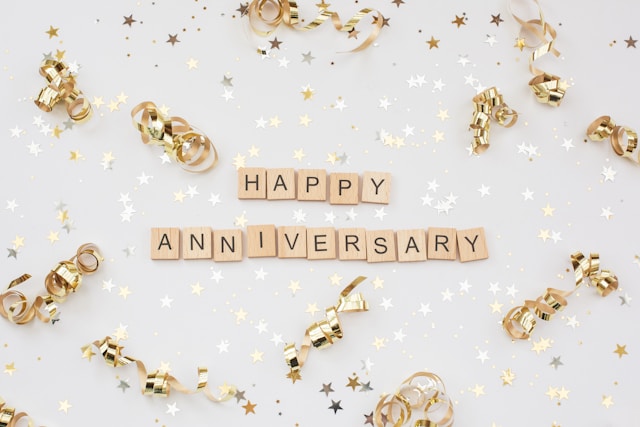When it comes to betrayal trauma healing, journaling isn’t just writing to be writing. Journaling is a way to explore your doubts, emotions, and pain. Thankfully, this tool can be an outlet to express your thoughts, concerns, fears, and affirmations. Some aspects of betrayal trauma are challenging to speak out loud, even to yourself.
There are some benefits I’ve enjoyed from journaling on my healing journey:
- I spent a great deal of time trying to understand sex addiction through journaling. This practice allowed me to explore my thoughts or questions regarding sex addiction through writing. Eventually, I could review my journal entries to see if I was making any progress in understanding the addiction. Journaling made it easier to make peace with the aspects of addiction I would never understand.
- Journaling was a healthy way to express my feelings. I found it hard to identify my feelings. However, processing my emotions and feelings through journaling was very helpful. There was something about writing what I was feeling versus conveying it verbally that made this more manageable for me. I could listen to my heart versus my head and write what I was feeling without analyzing what I wrote.
- Journaling helped me sort through the ruminating thoughts in my head. I used to get overwhelmed by intrusive thoughts, especially after I received a disclosure. However, writing my thoughts down helped me analyze each one, giving me a sense of control versus feeling like the thoughts were controlling me. I could decide if the thoughts were helpful, realistic, or not worthy of my energy.
- I could journal without worrying about judgment. I liked journaling because I could write whatever I thought or felt without fearing the judgment of others. Whether or not to share my entries was my decision to make.
- Journaling made it easier for me to articulate myself. When preparing to have a challenging conversation with my husband, I organized my thoughts ahead of time through journaling, which also helped me respond versus react. I’ve used this to prepare for anticipated difficult conversations with other family members, co-workers, and friends.
- Journaling helped me manage my triggers. I have used journaling to help me identify my emotions when triggered, calming myself down. When triggered, I journaled about what upset me, why it upset me, and what I was telling myself about the trigger, allowing me to move through the trigger healthily.
- Journaling also helped me practice self-care. Everyone kept telling me to prioritize self-care at the beginning of my journey, but that was just a concept until I started journaling about it. Early on my journey, I needed to be accountable for sleep, eating, attending meetings, regularly connecting with my accountability partner, and reading support materials. Eventually, I made the following questions part of my daily journaling check-in:
– What did I do for myself today?
– Did I practice self-care (emotionally, physically, mentally, spiritually, etc.)?
– What are my self-care plans for tomorrow?
– Name one thing I love about myself.
– What did I do well today?
I did not always have an answer to the questions above, but I knew I was accountable for writing in my journal to assess whether I practiced self-care. I don’t know if I would have focused on self-care if I hadn’t journaled about it, making me accountable to myself.
• I could freely go off on my husband. I could write down all the nasty things I wanted to say to my husband, offloading my anger and frustrations. I did not always share what I wrote because my writing was hurtful. People say hurting people hurt others, and that was precisely the case when I first learned of my husband’s addiction. Thankfully, I could journal my distress, knowing I wouldn’t necessarily verbalize it to my husband, at least not without waiting 24 hours.
• I used journaling to tackle some challenging issues in my healing process. I wrote to my husband’s mistress, the women in the porn my husband viewed, and the people who contributed to my husband’s addiction by hurting him as a child. I knew I would never give these journal writings to the people I wrote to, but it was a way for me to address people who participated in my husband’s addiction, who I felt ultimately hurt me. These were tough journal entries to write, which required me to fight through the pain, anger, and tears to put pen to paper (fingers to laptop), but each writing was exactly what I needed to progress in my healing.
• Journaling became a way to connect with God. Sometimes, I approached my journaling as if I was writing or praying to God. It was just me and him, so I could be honest, knowing I was loved unconditionally. Sometimes, I wrote to God asking him to help me or telling him what I was struggling with as if he was right next to me having a conversation. I never felt condemned for anything I wrote; I always felt better – I felt loved and understood.
You may have some thoughts or concerns about this tool:
How often should I journal? There is no set rule on how often one should write a journal. However, I journaled as much as possible at the beginning of my journey because there was so much going on in my head and heart for me to sort through. If someone isn’t into journaling, a simple goal of twice a week, once a month, or every Sunday is an excellent way to start.
Should I only journal when I am upset or struggling? I tried to stay out of the habit of journaling only when I was upset because I wanted to put equal energy into acknowledging my good days or progress as I did my yucky days. I did not want to live in negativity all of the time, so if I committed to journaling a certain number of days regardless of what was going on in my life, I was more likely to journal because I was trying to be consistent with my writing versus a commitment to only write when I was upset. It’s okay to give yourself props for having a good day or handling a situation that makes you feel good or the direction your healing is going. Recovering from betrayal trauma is a process of ups and downs, so your journal writing ought to reflect that.
My mind goes blank when I attempt to journal. Any suggestions? Consider some daily check-in prompts to begin each journal entry, such as:
- What went well today?
- What was today’s highlight?
- What was today’s low, and can I do something to make it better?
- Did I feel God or a spiritual presence today?
- Do I need to acknowledge something my partner did that was helpful or noticeably better than before, which I appreciate?
- Is there one thing I can feel grateful for today?
- Can I give myself a pat on the back for today?
- Is there something I feel uneasy about regarding my partner’s addiction I need to explore through journaling?
- Did I learn anything today?
Answering a set of prompts eases the anxiety of feeling like you must know what to write each time you open a journal.
I struggle to get in the mood to journal. Do you have any suggestions? There is nothing wrong with using enhancements when journaling, so if you need a little extra to motivate yourself, please consider the following:
Meditate before or after journaling.
Write in a calm environment.
Buy a journal with an encouraging quote, illustration, or expression on the cover. (I usually find these at Ross Dress for Less, Burlington, TJ Maxx, or Marshall’s)
Buy a blank journal and decorate the cover to motivate or encourage you.
Play calming music or nature sounds while journaling.
Journal in a quiet or calming room.Journal in nature.
Journal somewhere where you know you won’t be disturbed.
Use journals with prompts or questions you only have to fill out. There is usually space in them for you to expand on your thoughts (I’ve listed a few at the bottom).
I hate writing. Are there other options available? There are different ways to journal besides pen and paper (fingers to laptop). Many partners tell me they don’t like to write or feel like they don’t write enough. I usually suggest these alternatives:
A journal you can draw in. One can draw whatever reflects what they are experiencing with a pen, markers, crayons, or pencil. My current therapist is also an Art Therapist, so she has given me a few drawing assignments for us to analyze together. However, one can draw and share it with someone else or keep it to yourself. I would suggest not reviewing or analyzing your drawing right after completing it. Let a few days pass before you look at it again.
A scrapbook journal can be helpful as well. I love to scrapbook, but I have to admit I have yet to do this except for vision boards. However, some people like adding pictures from magazines and using stickers to display what they want to express versus journal writing. This can be an excellent way to visualize what you are feeling. However, this process is more tedious than regular journaling.
Index card writing. Some people like writing on one side of an index card or putting bullet points on the card. This is an excellent way to journal, knowing you do not have to write much because you are only working with a limited amount of space, even if you choose to write on the backside of the index card. This is less intimidating, and you can use bullet points, draw, or express yourself however you choose.
If/ then journaling. I use this with some of the partners accountable to me in their healing journey. You take a concern, fear, anxiety, or anything you want to examine further that may seem overwhelming that needs breaking down. This can be done by sentence or by putting each item in a circle or square. The idea behind this is you can see you have options. This also highlights what you can and cannot control, decreasing anxieties by making the perceived challenges more manageable. I provided an example below, but someone may come up with different options for the example below, which is perfectly okay. The point is people. look at their issues realistically knowing they have choices:
For me, journaling was a way to take time out from the noise of support groups, other’s opinions, or other resources to get quiet with myself and what I was dealing with in a way that kept me in the reality of what I was going through. It’s a tool worth trying in your healing process that you can adjust to your lifestyle with the many suggestions I’ve provided above. Today, I journal regularly about various things, including betrayal trauma. Journaling gives me insight into where I was and where I want to be and an appreciation of what it took to get to where I am today. Most importantly, journaling keeps me honest about how I wish to show up daily for God, myself, and others. I hope you will try journaling and consider some of the options I provided. If you are bored with the practice, you may want to change things up. Regardless of where you are in journaling, I think this tool will be very beneficial once you decide what works best for you.
These are some of my favorite journals, but I would love to know if there are other ones people would recommend. If so, please email me at joy@betrayednotbroken.com or visit my Facebook page, Betrayed Not Broken, to share your recommendation:
A Freedom Journal…31 Guided Prompts To Personal Liberation by Olivia F. Scott
Joy Every Day …Your Daily Mood Tracker by Esmee Rotmans
101 Ways to Nurture Yourself by Chris Mabon
Just Breathe …a journal of self care published by Punch Studio
It’s Gonna Be Okay published by Knock Knock
My Prayer Journey…A 52-Week Guided Journal to Inspire a Deeper Connection with God (Inkand Willow publishing). I found this at Five and Below




